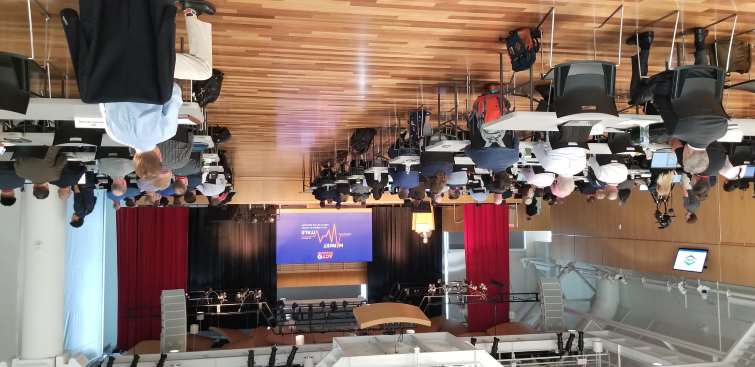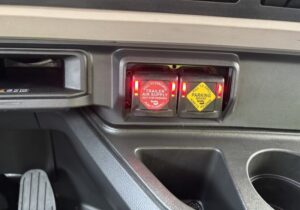COLUMBUS, Ind. — It was a full day on Wednesday, Aug. 23, at the 69th Market Vitals conference hosted by ACT Research.
Presented at The Commons, an architectural masterpiece in downtown Columbus, the first day of the conference featured industry experts and subject matter experts delivering to a crowd representing carriers, customers and suppliers.
After brief remarks by ACT President and Senior Analyst Kenny Vieth, ACT Principal and Industry Analyst Jim Meil began the presentation with an update on the economy. While the predicted economic recession is still possible, it is unlikely, he said.
As confusing as it may seem in light of recent reports, Meil’s conclusion is appropriate for the mixed signals coming from different sectors of the economy. Interest rate hikes from the Federal Reserve have slowed the rate of inflation, but not down to the 2% level that is the goal.
Miel predicts there will be yet another interest rate hike before the increases end. But, he warns, the upcoming election could bring political pressure on the Fed to start reducing rates as consumers become dissatisfied with high-interest loans and credit card debt.
Reducing rates, however, could send inflation soaring again.
High interest rates drive up the price of home mortgages, resulting in fewer homebuyers. That’s a condition that can result in less freight for the industry.
David Teolis, former deputy chief economist for General Motors, explained that signals he’s seeing from the economy are still mixed.
For example, the interest rate on Treasury Bills (or T-bills) has been inverted for 13 consecutive months, something that almost always signals a recession. Under normal conditions, the longer the term of the T-bill, the better the interest rate. When inversion occurs, short-term T-bills pay better than long-term bills.
Investors don’t want to invest long-term because the rate of inflation could negate any profits they earn.
Miel also pointed out that credit is tightening as more lenders increase restrictions on loans — and that means fewer borrowers will qualify. This is another sign that a recession could be imminent.
Other signs, however, aren’t pointing toward a big downturn.
Unemployment usually goes up just before a recession, but U.S. numbers have remained stubbornly low at around 3.5%. Despite higher credit costs, the housing market hasn’t crashed and capital expenditures by businesses remain high.
One possibility, Miel suggested, is a “rolling” recession, where different sectors of the economy fail at different times. Transportation has had its share of issues in the past year, and manufacturing could be next.
Cliff Abbott is an experienced commercial vehicle driver and owner-operator who still holds a CDL in his home state of Alabama. In nearly 40 years in trucking, he’s been an instructor and trainer and has managed safety and recruiting operations for several carriers. Having never lost his love of the road, Cliff has written a book and hundreds of songs and has been writing for The Trucker for more than a decade.















